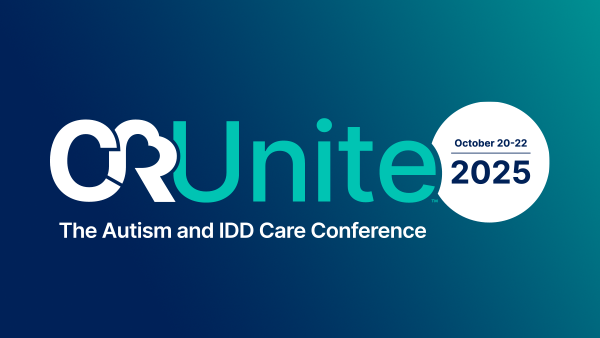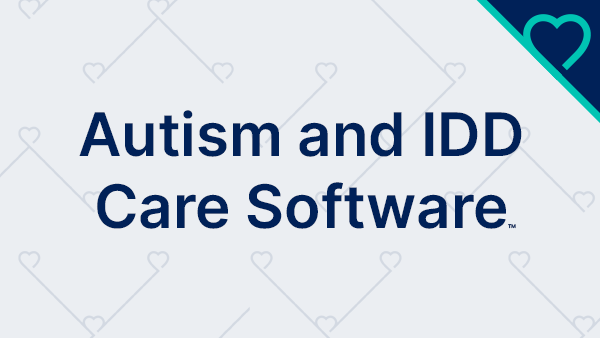Applied Behavior Analysis (ABA) is a therapeutic approach to improving behaviors and teaching socially significant skills. Extensive research spanning decades has consistently shown its efficacy. Because of this, ABA is one of the most highly recommended therapies for children with autism and IDD.
CentralReach is the premier provider of autism and IDD care software. We are committed to improving the field by optimizing workflows and reducing barriers to care. Join us as we explore each of the ABA certifications, including their significance and requirements.
Why ABA Therapy Certification Matters
ABA certification validates the expertise and knowledge of ABA practitioners. The primary role of certification is to protect the clients of behavior analytic services. Requiring certification to practice behavior analysis increases the likelihood that professional standards of practice are upheld. When providing care for vulnerable populations such as those with autism, clinicians must engage in safe, ethical, effective, and evidence-based practices. Thus, certifying ABA clinicians safeguards the well-being of these learners.
The Behavior Analyst Certification Board® (BACB®) certifies ABA professionals who meet specified standards and requirements. The board is responsible for establishing research-supported standards of care, developing ethical codes, and creating examinations that encompass the knowledge necessary for each role.
Registered Behavior Technician® (RBT®) Certification
The registered behavior technician® (RBT®) certification is granted to direct care ABA providers. This role is critical for the provision of quality therapeutic services.
RBT® Requirements and Eligibility Criteria
To become certified as a registered behavior technician®, one must meet all of the following requirements:
- Reside in the US, Canada, Australia, or the UK (Note: Applicants in the UK can only apply for certification through 2025)
- 18 years of age or older
- Obtain a high school diploma or equivalent
- A clear criminal background and abuse registry check
- Complete a 40-hour RBT course
- Pass a competency assessment
- Pass the RBT® final exam
RBT® Competency Assessment and Examination
Once the aspiring technician completes the 40-hour course and ensures they have met the prerequisite requirements, the next step is a competency assessment. This assessment is completed with a BCBA® or an assistant assessor. During this assessment, the candidate demonstrates an understanding of key concepts and skills.
The last requirement for this certification is a passing score on the final RBT®certification exam. This is necessary to ensure behavior technicians have the essential knowledge and skills to provide effective and ethical care.
This exam is based on the RBT® certification task list developed by the certification board, which covers questions in the areas of:
- Measurement
- Assessment
- Skill acquisition
- Behavior reduction
- Documentation and reporting
- Professional conduct and scope of practice
Scope of Practice
RBTs® implement programs and interventions to teach their learners new skills and decrease interfering behaviors. They work under the supervision of behavior analysts who create the interventions and ensure treatment fidelity.
Behavior Technician Career Opportunities
ABA is a rapidly growing field. The RBT® certification was created in 2014 with just 328 certificants. By the end of 2023, the BACB® reported over 160,000 active RBTs. In 2023, the field saw the most considerable growth yet, with nearly 30,000 newly certified technicians!
There continues to be tremendous demand for high-quality, certified ABA paraprofessionals. Nearly 85% of RBTs® work within the autism care sector of ABA (Behavior Analyst Certification Board, 2024). However, other opportunities exist, including clinical behavior analysis and roles within the school system.
Data collection software tailored for ABA professionals, such as those CentralReach offers, streamlines behavior technicians’ responsibilities. Digital data collection makes it simple for RBTs® to do their job well, increasing job satisfaction and reducing the likelihood of burnout.

Board Certified assistant Behavior Analyst® (BCaBA®) Certification
A Board certified assistant behavior analyst® (BCaBA®) is an undergrad-level certified ABA professional. These professionals play a key role in supporting BCBAs® by running client programs, implementing behavior plans, and supervising behavior technicians.
BCaBA® Requirements and Eligibility Criteria
To become certified as a BCaBA®, one must meet all of the following requirements:
- Reside in the US, Canada, Australia, or the UK (Note: Applicants in the UK can apply for certification through 2025)
- Obtain an ABAI-accredited undergrad degree in behavior analysis or an undergrad degree along with 225 hours of behavior-analytic coursework
- Complete 1,000-1,300 supervised fieldwork hours
- Pass the BCaBA® exam
BCaBA® Examination
An exam is the final requirement for certification as an assistant behavior analyst. This exam has 160 questions. Ten of these questions are unscored pilot questions for future exams.
The exam content is based on the current BCaBA® task list, which covers questions related to:
- Philosophical underpinnings
- Concepts and principles
- Measurement, data display, and interpretation
- Experimental design
- Ethics
- Behavior assessment
- Behavior-change procedures
- Selecting and implementing interventions
- Personnel supervision and management
Scope of Practice and Career Opportunities
BCaBAs® have many of the same responsibilities as BCBAs®, though they cannot work independently. Assistant behavior analysts must work under a qualified supervisor with monthly ongoing supervision. According to the BACB® US employment demand data, while the demand for behavior analysts continues to rise, there was a slight dip in demand for BCaBAs® in 2022. However, the need continues to surpass the availability of certified assistant behavior analysts.

Board Certified Behavior Analyst® (BCBA®) Certification
A BCBA® is a graduate-level certified ABA professional. Certified behavior analysts create skill acquisition programs, conduct functional behavior analyses (FBAs), implement behavior plans, train and supervise behavior technicians and assistant behavior analysts, and run parent training sessions, among many other tasks. This role is critical for ensuring the safety and efficacy of therapy.
BCBA® Requirements and Eligibility Criteria
To become certified as a BCBA®, one must meet all of the following requirements:
- Reside in the US, Canada, Australia, or the UK (Note: Applicants in the UK can apply for certification through 2025)
- Obtain a master’s degree or higher in behavior analysis from an APBA or ABAI-accredited institution OR a master’s degree plus 315 hours of behavior-analytic coursework
Note: There are two alternative pathways: faculty teaching and postdoctoral experience. These will be discontinued as of January 2027. - Complete 1,500-2,000 supervised fieldwork hours
- Pass the BCBA® exam
BCBA® Examination
An exam is the final requirement for certification as a behavior analyst. This exam consists of 185 questions, 10 of which are unscored pilot questions for future exams. Aspiring analysts have four hours to complete the exam.
The exam content is based on the current task list, which covers questions related to:
- Philosophical underpinnings
- Concepts and principles
- Measurement, data display, and interpretation
- Experimental design
- Ethics
- Behavior Assessment
- Behavior-change procedures
- Selecting and implementing interventions
- Personnel supervision and management
Career Trajectory for Behavior Analysts
The demand for certified behavior analysts is growing substantially as the ABA field continues to evolve. Demand increased 23% from 2021 to 2022. Becoming certified as a behavior analyst allows for many potential opportunities. 75% of BCBAs® work with the autism population. However, they may also work in the education system, higher ed, clinical behavior analysis, behavioral pediatrics, professional supervision, or organizational behavior management (OBM), among many other subspecialties.
Board Certified Behavior Analyst-Doctoral® (BCBA-D®) Certification
A BCBA-D® is a certified BCBA® who has behavior analytic doctoral training. It is not a distinct certification from that of the BCBA®. There are no additional exams or fieldwork experience requirements.
To become certified as a BCBA-D®, you must meet the following requirements:
- Be actively certified as a BCBA® (See BCBA® section above for educational and fieldwork requirements)
- Hold a doctoral degree from an ABAI-accredited program OR hold a doctoral degree with a behavior-analytic dissertation and behavior-analytic coursework, mentorship, or publications OR a doctoral degree with 1,800 hours of postdoctoral experience and two peer-reviewed publications

The Role of Software in Modern ABA Practice
ABA providers have witnessed tremendous growth over the last several years, and with this growth has come increased complexity. This evolution has led many to turn toward technology and specialized software to enhance the delivery of high-quality therapeutic services. In modern practices, ABA software is critical for streamlining workflows, ensuring data accuracy, and facilitating communication among team members. CentralReach’s tailored solutions have transformed the ABA field, contributing to the integration of technology in ABA practices for over a decade.
Elevating Care With Certified ABA Professionals
Behavior technicians, behavior analysts, and assistant behavior analysts must adhere to safe, ethical, and evidence-based practices. While validating the expertise and knowledge of ABA providers, certifications from the Behavior Analyst Certification Board® also ensure therapists adhere to evidence-based standards and care.
As the ABA landscape evolves, so do innovative technological solutions, such as those offered by CentralReach, which elevate care and improve job satisfaction.
Are you interested in earning BCBA® ABA therapy certification? Check out A Day in the Life of a BCBA® to learn more about what this role entails!
Posted in All, Applied Behavior Analysis & Training, Education
You may also like...
Related information and stories
JoyBridge Kids: Redefining Autism Care with a Unified, People-Focused Model
JoyBridge Kids is a growing leader in interdisciplinary autism care, serving children across Tennessee, Georgia, and North Carolina. The team is committed to a clinician-first culture, with a service model…
Continue ReadingMeet the McCloskeys: Innovators in Executive Function Practice
Meet the McCloskeys: Innovators in Executive Function Practice Executive functioning (EF) skills, from focus and sustained attention to self-regulation and impulse control, are the foundation for success in school, work,…
Continue ReadingRedefining Documentation: How BASS Improved Session Note Workflows with AI
With AI summaries built into their EMR, clinicians spend less time typing and more time treating BASS ABA Therapy, a dedicated provider of best in class ABA services across Florida…
Continue Reading



